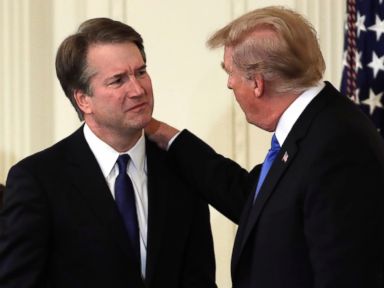
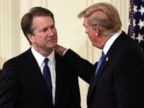

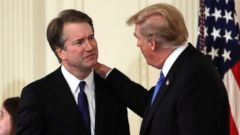
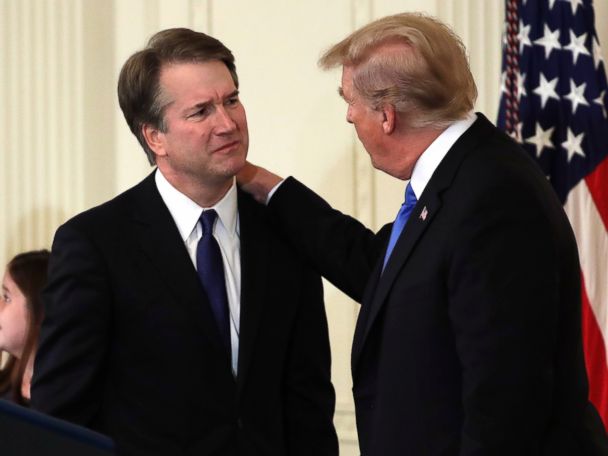
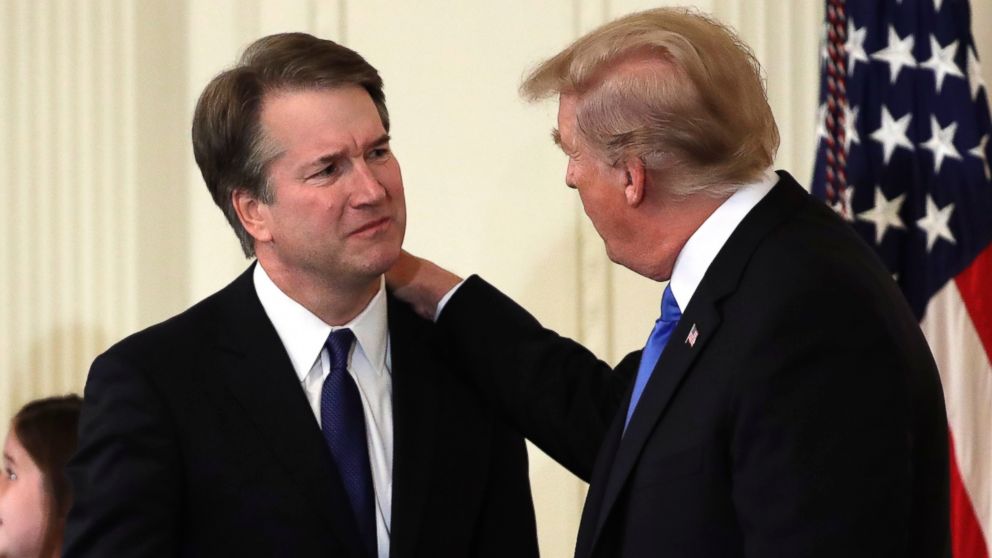

In Judge Brett Kavanaugh, President Donald Trump has chosen a man for the Supreme Court who has sterling academic credentials; a long record of public service; a trove of almost 300 judicial opinions, many highly regarded; an appealing personal story; a lovely family—and a radically expansive view of the power of the presidency.
Judge Kavanaugh has long been seen as a conservative legal superstar. From an early age, he was groomed for a top position in the legal firmament, mentored by prominent conservatives, steered into nationwide networks of contacts and opportunities, hired for plum jobs, and promoted ever upwards.
By the way, conservatives do this sort of thing much better than liberals.
The Federalist Society, which for decades has spearheaded the campaign to take back the courts in the name of an approach to legal thinking that is focused on the original meaning of the Constitution and laws, is the de facto gatekeeper for Republican judicial nominations.
It is also a rich source of academic research and debate advancing conservative legal ideas.
And it’s a kind of club whose members are bound for life in a great mission: undoing the liberal legal revolution of the 1960s and 1970s.
If Judge Kavanaugh becomes Justice Kavanaugh, it will be the greatest triumph of the Federalist Society. And it’s one of the most significant accomplishments in recent American political history.
Kavanaugh’s nomination has sparked a great deal of concern on the left about issues like abortion, affirmative action, gay rights, and other social issues. There’s another issue, however, where Kavanaugh has staked out strikingly hard-right positions: executive power.
Before becoming a judge, Kavanaugh spent most of his career working for the executive branch of the federal government—in the Justice Department under President George H. W. Bush; in Ken Starr’s Office of the Independent Counsel investigating President Bill Clinton; in the White House counsel’s office under President George W. Bush; and finally as President Bush’s White House staff secretary.
These increasingly powerful (and yet professionally narrow) positions seem to have given Kavanaugh a sweeping, even unbalanced view of how powerful presidents should be under the law.
For instance, on the federal appeals court in Washington, Kavanaugh has argued for expansive presidential authority in what used to be called “the global war on terror,” especially when it comes to the incarceration and treatment of accused enemy combatants.
He has also called for overturning a landmark 1935 New Deal-era Supreme Court opinion that for 83 years has been one of the foundations of modern American governance. It’s called Humprey’s Executor vs. United States, and in it, a unanimous Supreme Court upheld the constitutionality of independent agencies like the Consumer Product Safety Commission, the Federal Election Commission, the Securities and Exchange Commission and many dozens more. Kavanaugh views the very independence of these agencies as an unconstitutional infringement on the power of the president.
There’s more. In a striking passage in an academic article, Kavanaugh once suggested a president does not have to follow the law if he or she finds it unconstitutional until ordered by a court to do so.
“To be sure, the President has the duty to take care that the laws be faithfully executed,” he wrote. “That certainly means that the Executive has to follow and comply with laws regulating the executive branch – at least unless the President deems the law unconstitutional in which event the President can decline to follow the statute until a final court order says otherwise.”
And, as you may have heard, Kavanaugh believes that the American president should be immune from criminal investigation and prosecution while in office, and should be able to fire any special counsel he feels is “out to get him.”
He called on Congress to protect presidents from the exact same kind of wide-ranging probe he enthusiastically participated in when he worked as a key aide to Ken Starr’s investigation of Bill Clinton.
“Congress should give back to the President the full power to act when he believes that a particular independent counsel is ‘out to get him.’ Such a step not only would make the special counsel accountable, but it also would force the President and his surrogates to put up or shut up.”
And he also wrote, “In particular, Congress might consider a law exempting a President-while in office-from criminal prosecution and investigation, including from questioning by criminal prosecutors or defense counsel.”
Read that first sentence again. It almost sounds like the kind of thing President Trump might tweet when he rails against what he calls the “witch hunt” of special counsel Robert Mueller’s investigation.
When precisely Kavanaugh changed his mind about the wisdom of partisan-tinged investigations of presidents is unclear. But you can bet senators will want to know the answer to that question, and to many more as they come to a decision about whether this advocate of such expansive presidential powers is the right choice at this historical moment to take the place of Anthony Kennedy on the Supreme Court.
